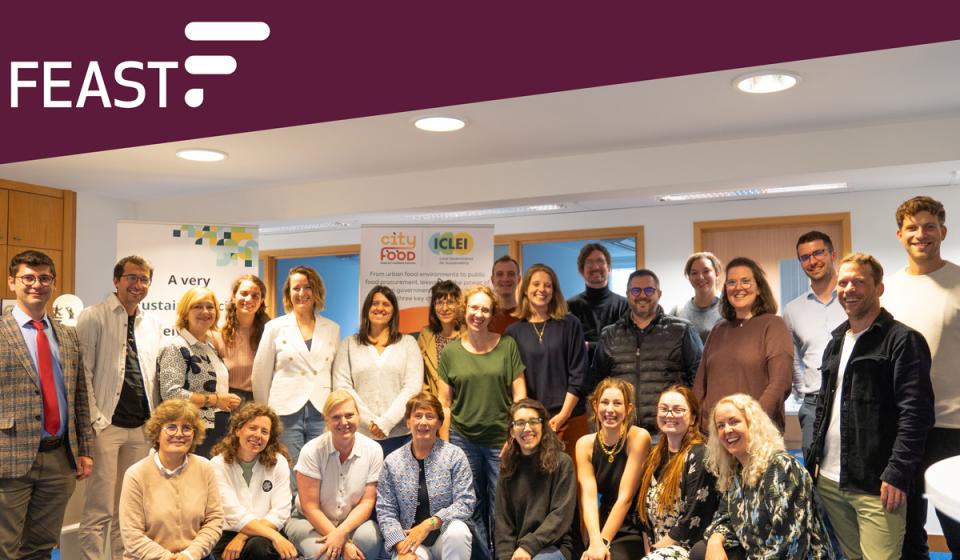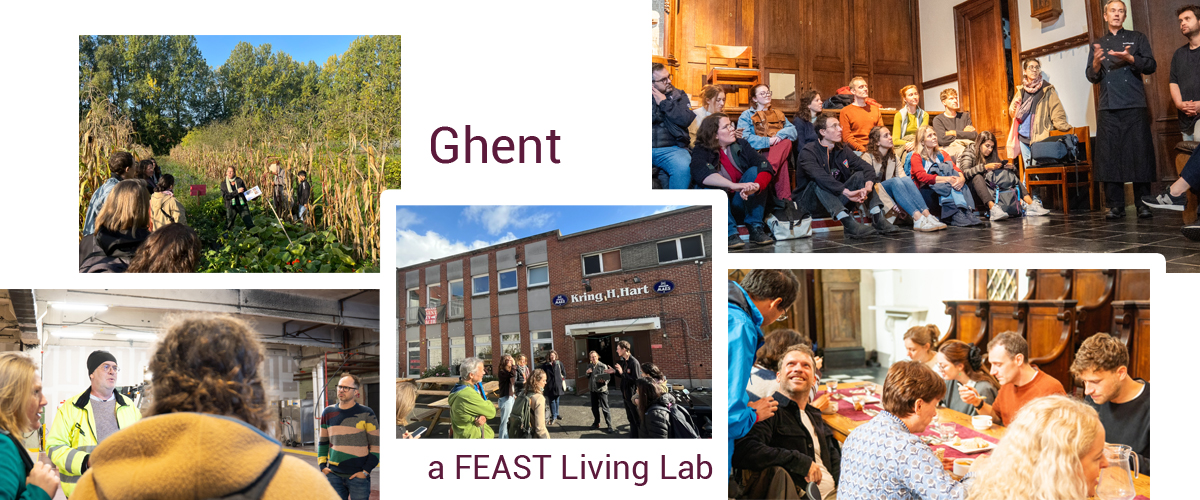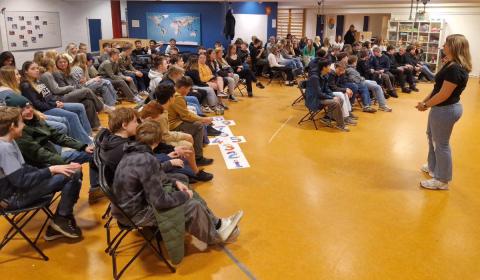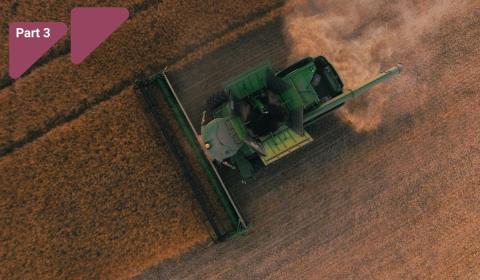
Image source: FEAST
On October 8th, in Brussels, the FEAST project officially entered its next phase with the FEAST Replication Programme Kick-Off.
This milestone event brought together nine FEAST Replicators from eight different countries, joining the already established twelve Living Labs. With this expansion, FEAST now spans seventeen countries across Europe.
The gathering offered an opportunity for replicators and their twin Living Labs to connect, share challenges, and exchange ideas, marking the beginning of an exciting two-year collaboration.
Day 1: Brussels – ICLEI Europe Office
The first day of the Replication Kick-Off was hosted at the ICLEI Europe Brussels office.
Welcoming remarks were delivered by Irene Fabricci, Sustainable Food Systems Expert at ICLEI Europe, who introduced the goals of the Replication Programme. Dr. Anant Jani, FEAST Project Coordinator, then provided an overview of FEAST’s vision and objectives, emphasizing the project’s mission to “make it easy for all people in Europe to eat delicious, healthier and more sustainable food” amidst the current lack of supportive “opportunity architecture” for healthy choices.
To break the ice, participants used CULTIVATE’s Library of Citizen Engagement, selecting and sharing one engagement method that resonated personally with them or with their own approach to working with communities. Following introductions, participants were invited to Get into Doctor Mode, a creative exercise to diagnose and treat the “diseases” affecting today’s food systems.

Getting into Doctor Mode
This interactive workshop was led by Michaela Hickersberger and Martin Hosner from ÖkoSoziales Forum, representing the LEADER Region Living Lab in Austria.
Living Labs and their twin Replicators worked together to identify common symptoms in their local food systems, uncover the underlying diseases, and propose potential treatments.
Some of the systemic issues identified included:
- Power imbalances among stakeholders
- Difficulties in creating coherent strategies
- Limited political will to drive change
- Insufficient inclusion and representation
- The financial cost of transitioning toward healthy and sustainable diets
Participants then mapped their proposed solutions according to effort required and potential impact, helping to prioritize the most actionable treatments to restore food system health in their respective contexts.

Day 2: Ghent – Learning from Local Action
On the second day, participants travelled from Brussels to Ghent, one of FEAST’s Living Lab cities, for a series of immersive site visits showcasing local food initiatives.
Site Visit 1 – Ghent Food Support
Participants visited the local Foodsavers, the social grocery store Rabot op je bord, and learned about the city’s food support model from Koen Geirnaert, Poverty Policy Officer for the City of Ghent.
Site Visit 2 – Holy Heart Square Living Lab
Following in the footsteps of FEAST’s local actions, this visit included stops at CSA Farm Oogstgoed, where the organisation SIVI takes care of a plot with vulnerable populations from their community. Participants also visited Hartetroef, a new social restaurant where the FEAST persuasion study took place, and De Grote Tafel, a volunteer-run community kitchen.
Site Visit 3 – School Meals
The third visit focused on school food. Participants explored a city-run primary school participating in the SchoolFood4Change (SF4C) project, with insights from Tamara Brunning and Sarah Bruinaars on sustainable food procurement. The visit also included the collaboration between Sint-Lucas Art School and Parnassus.
Afterward, all groups reunited for lunch at Parnassus, a social restaurant where owners and chefs shared their mission: to ensure everyone has a seat at the table in the food system transition by offering delicious, healthy, and sustainable meals while providing employment opportunities for people relying on social welfare.
The afternoon concluded the FEAST Replication Kick-Off with two capacity-building sessions:
- Session 1 – Ratatouille by the Community Health Centres
A training programme for young mothers focusing on food, nutrition, and education. - Session 2 – Co-designed Food Environment Solutions by the Louis Bolk Institute
A participatory workshop to co-create solutions for improving access to healthier and more sustainable food.
Next Steps
In the coming months, FEAST Replicators will visit their twinned Living Labs to learn more about the activities that took place within the project, deepen collaboration, identify their priorities, and begin developing their FEAST Replication Action Plans. These plans will guide the implementation of locally adapted solutions and will be presented at the FEAST Final Conference in 2027.
With this successful kick-off, the FEAST replication journey is officially underway, building a stronger European community committed to healthier, fairer, and more sustainable food systems.
Find out more about the activities undertaken by the FEAST Living Labs in The FEAST Guide


